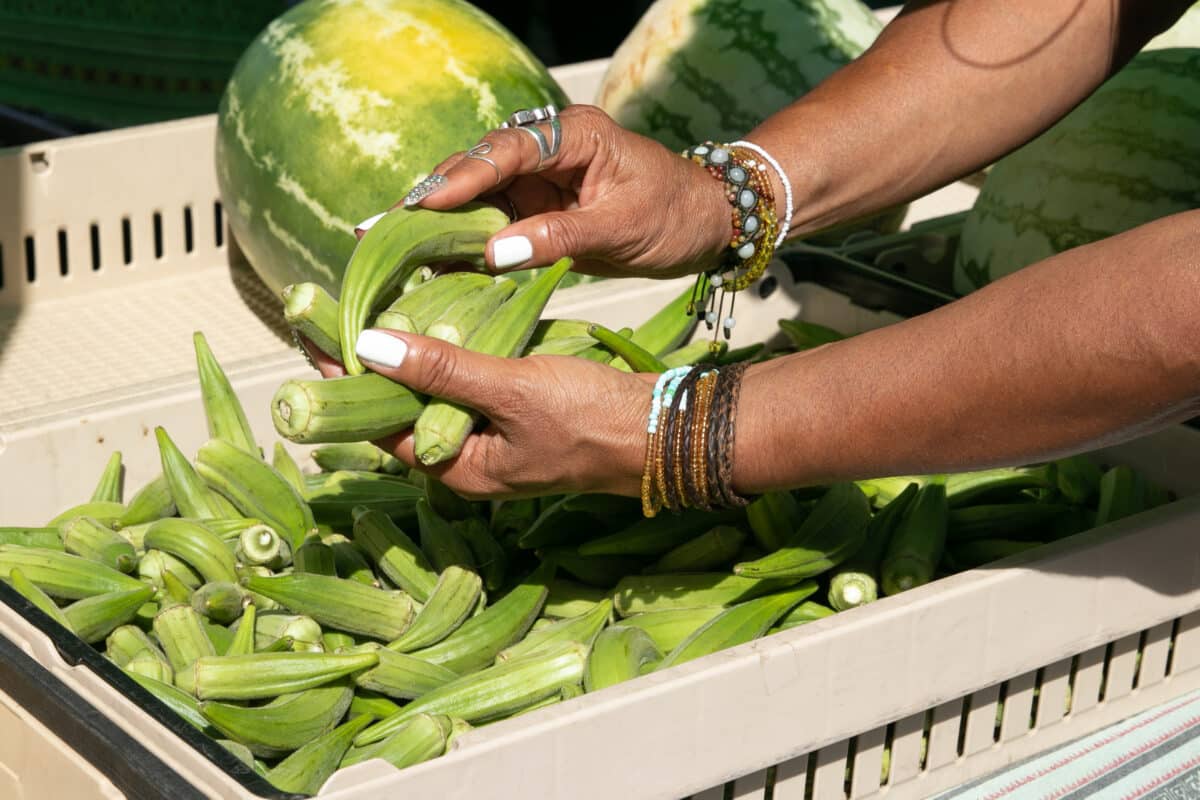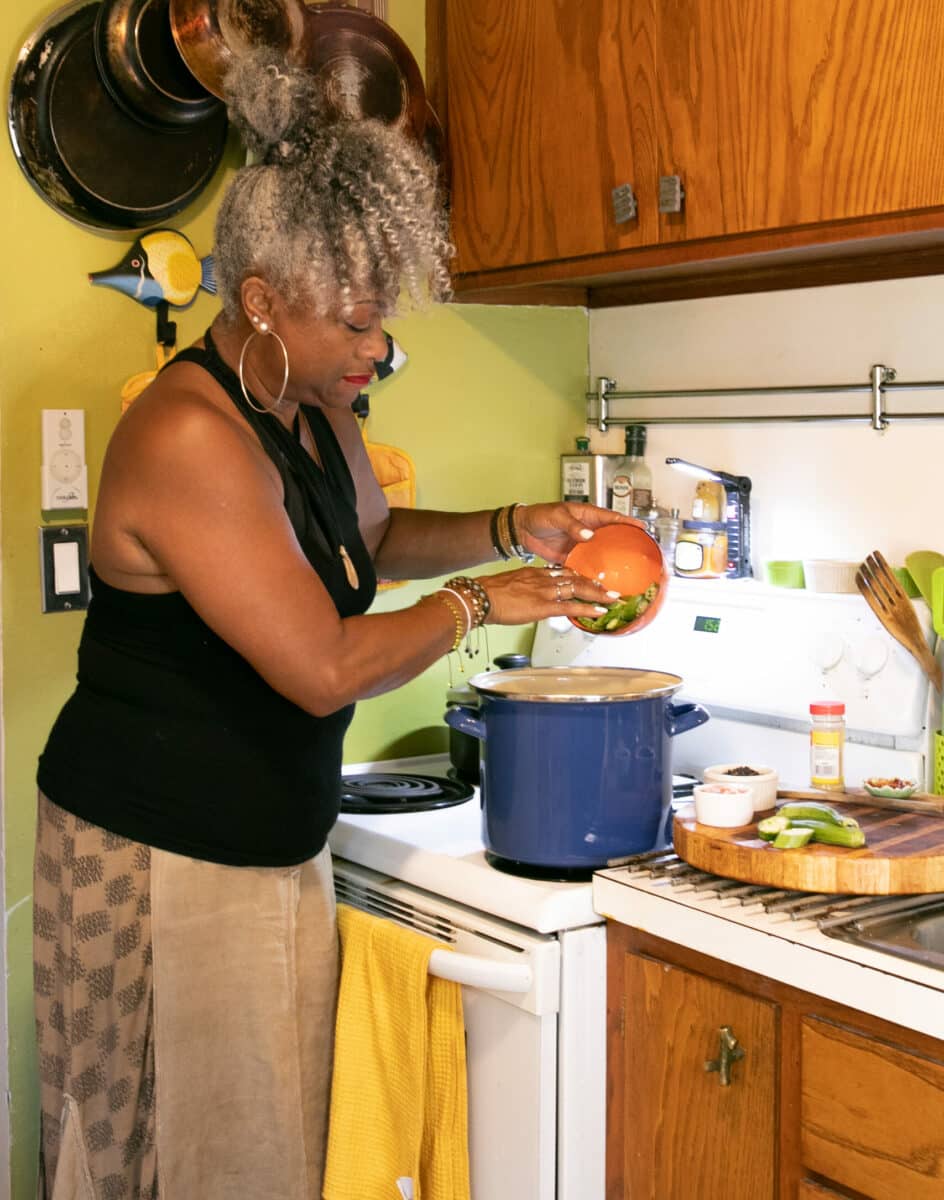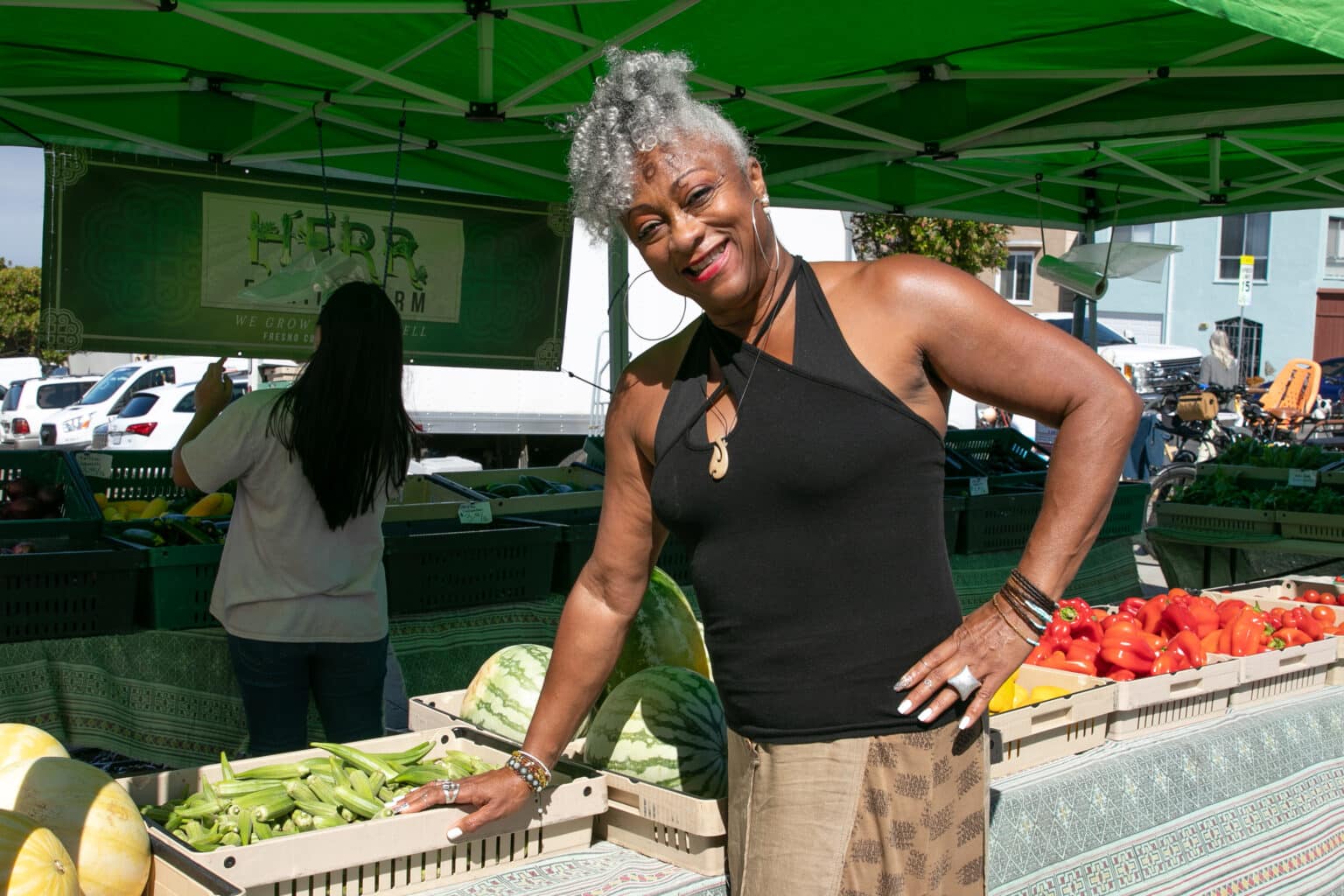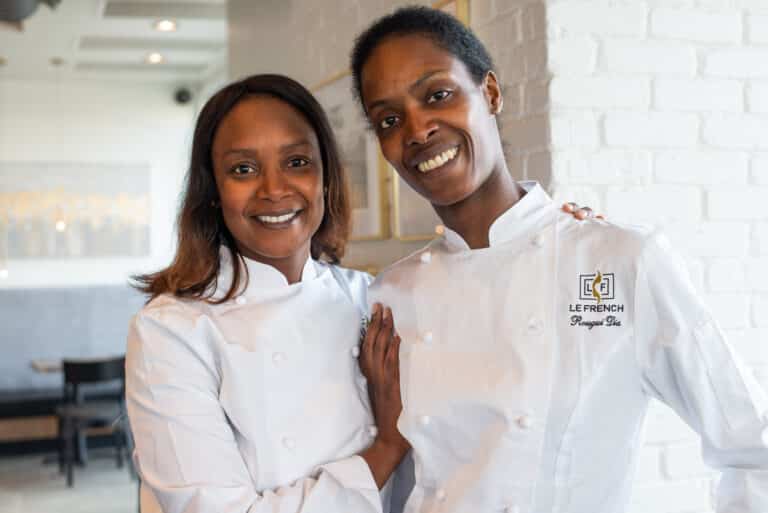|
Getting your Trinity Audio player ready...
|
As a child of the 1960s, growing up amongst the steep hills and foghorns of San Francisco, food represented family love and tradition. Back then, Sundays were about all-day cooking. I recall loving how fragrant and intense aromas of Black food would fill our Victorian flat. Those memories come rushing back and catapult me right back to sitting in the warmth and comfort of my family kitchen on Sunday mornings.
My mother — an active Black Panther member whose roots were from Monroe, Louisiana, and whose father migrated to San Francisco in the 1940s to escape the Jim Crow South — would create delicious dishes combining California’s fresh vegetables with Louisiana’s creole spices.
Mom would chop, sauté and simmer big pots of black-eyed peas and ham hocks, mustard greens, and turnips with fatback, crispy hot water cornbread, neckbones and gravy, oxtails, candied yams and cast-iron skillet cornbread. Watching her in the kitchen was like witnessing a graceful Alvin Ailey dancer as she moved with skilled determination from the chopping table to the stove and from the pantry to the refrigerator while the soulful sounds of Al Green crooning in the background played on the turntable.
The beautiful aromas blended like a symphony of onions, garlic, peppers and ham hocks. My mouth watered in anticipation of what I knew would be the best meal of the week.
Okra – More Than a Vegetable
My first experience with okra was not exactly a pleasant one. One Sunday, while watching mom cook, I noticed something different, something new — an odd-looking ingredient in the form of green, horn-shaped vegetable pods with tiny white seeds in their center.
With cautious hesitation, my curiosity aroused as she sliced and added the questionable vegetable to a skillet along with corn and tomatoes. “What’s that?” I precociously asked. Mom lovingly replied, “Well, pumpkin, this is called corn, okra and tomatoes. Have a taste?”

As she handed me a small spoonful, I was so taken aback by its slimy appearance that I clamped my mouth shut, and I politely declined by shaking my head. I would never have said this out loud, but to a child’s mind, it looked a lot like snot. Before that day, I had never turned down a Sunday kitchen treat, but okra was the exception.
As an adult and a blossoming home cook, I began cooking with okra. And I quickly realized that as long as the okra was cooked down, it stayed out of view and thickened the gumbo perfectly. I can now appreciate the slime as a thickener.
My curiosity about African food, and okra, in particular, led to my genealogical research into the origins of Black food and the discovery that the word gumbo is derived from the word “ki ngombo,” the West African word for okra.
Okra was discovered near Ethiopia during the 12th century B.C. and cultivated by the ancient Egyptians. During the transatlantic slave trade period of 1600 – 1808, slave ships contained crops from West and East Africa in addition to human cargo. Okra is a native African food and was one of many crops, including cowpea/black-eyed pea, kolas, yams, watermelon, coffee, rooibos, palm oil, shea, leafy greens, sorghum, pearl millet, finger millet, and more.
When ships ported along the coast of Brazil and the American colonies, they dropped Africans off to be enslaved and left the magnificent crops of green seed pods known as okra. Because of Brazil’s warm, tropical climate and the similar climate of the southernmost colonies, okra flourished and was established as a crop in the mid-1600s.

By the mid-1700s, okra was grown as far north as Philadelphia, and by the 1800s, okra was widespread throughout the South. Eventually, okra became an important addition to the diets of enslaved Blacks and was slowly introduced to the kitchens of enslavers, finally finding favor throughout Brazil and Europe.
Okra Equals Love
Now, I love okra and its connection to my Black cultural lineage. My initial dislike of its texture slowly dissipated as my palate expanded when I was introduced to dishes such as Cajun succotash, gumbo and jambalaya, which all included this wonderful ingredient.
RELATED: The Best Types of Plums for Cooking and Baking
My favorite, by far, is cornmeal fried okra, which is served with a sweet, spicy dipping sauce and is an excellent topping for beans, soups, and stews. Okra gets a bad rap for its slimy appearance and taste, but I also pleasantly discovered that this ancient African vegetable is packed with nutrients. Okra is rich in vitamins A and C and antioxidants that help reduce the risks of cancer, diabetes, stroke and heart disease.
Thank you mommy for creating family love through our rich food traditions and introducing me to okra.








